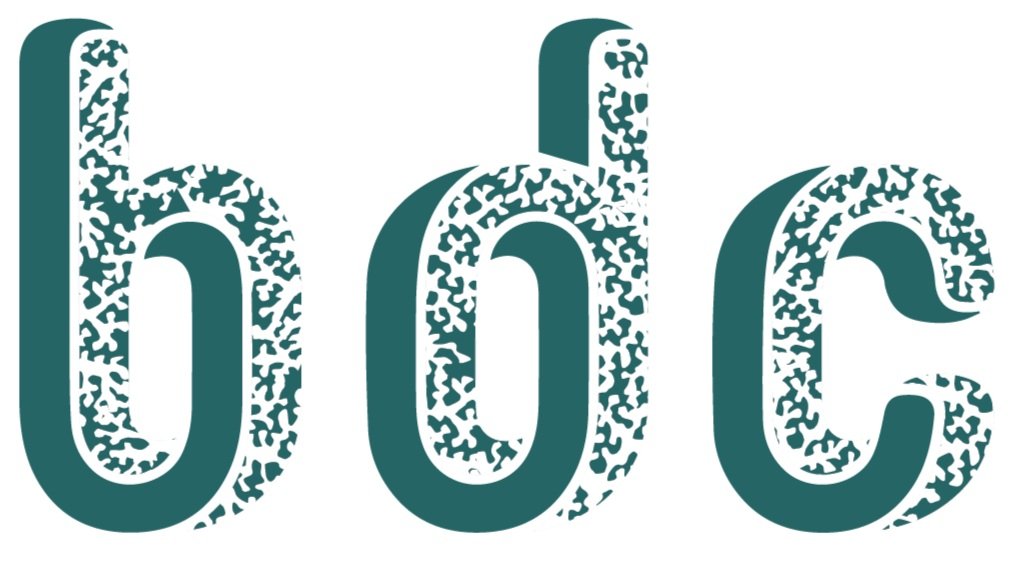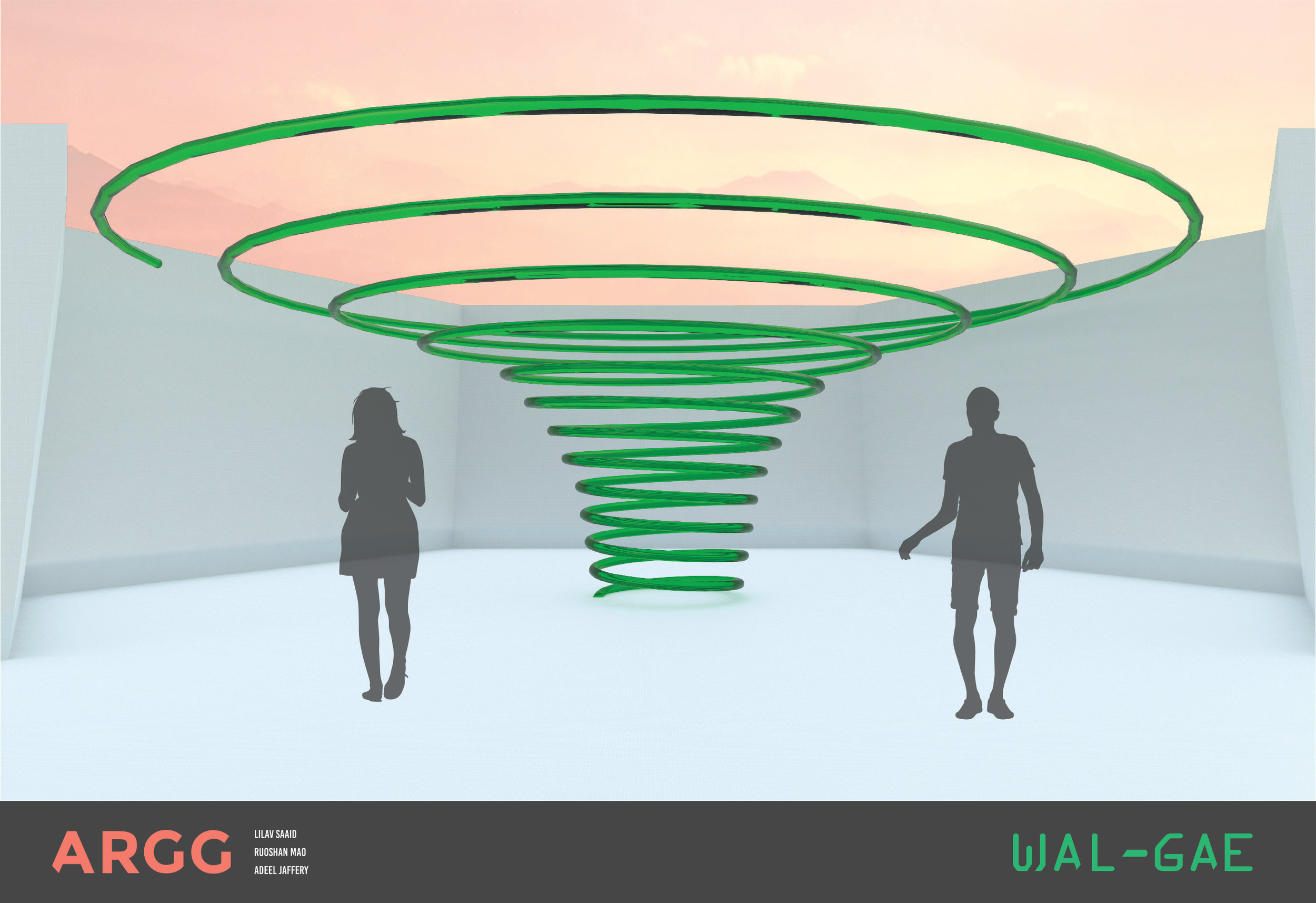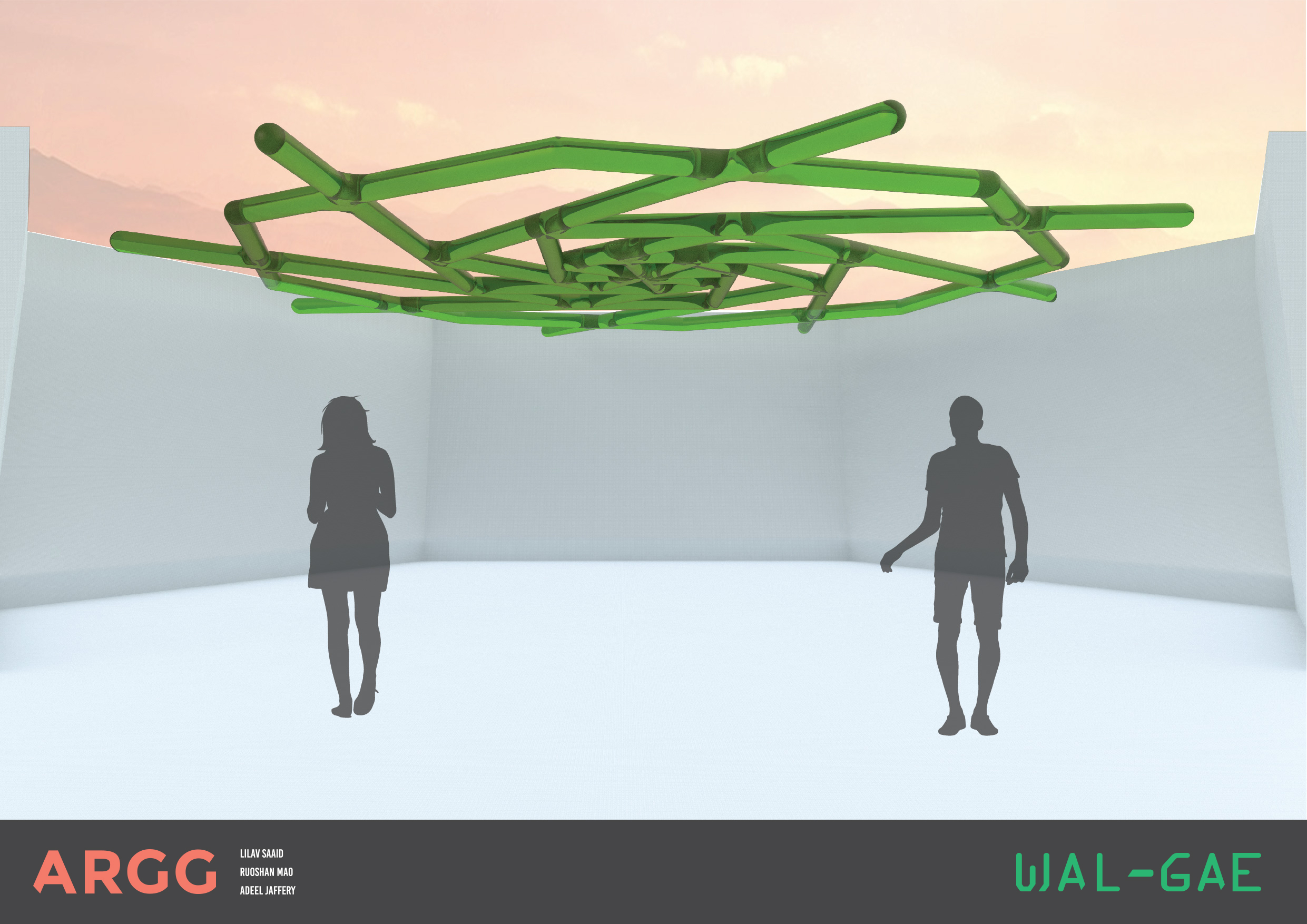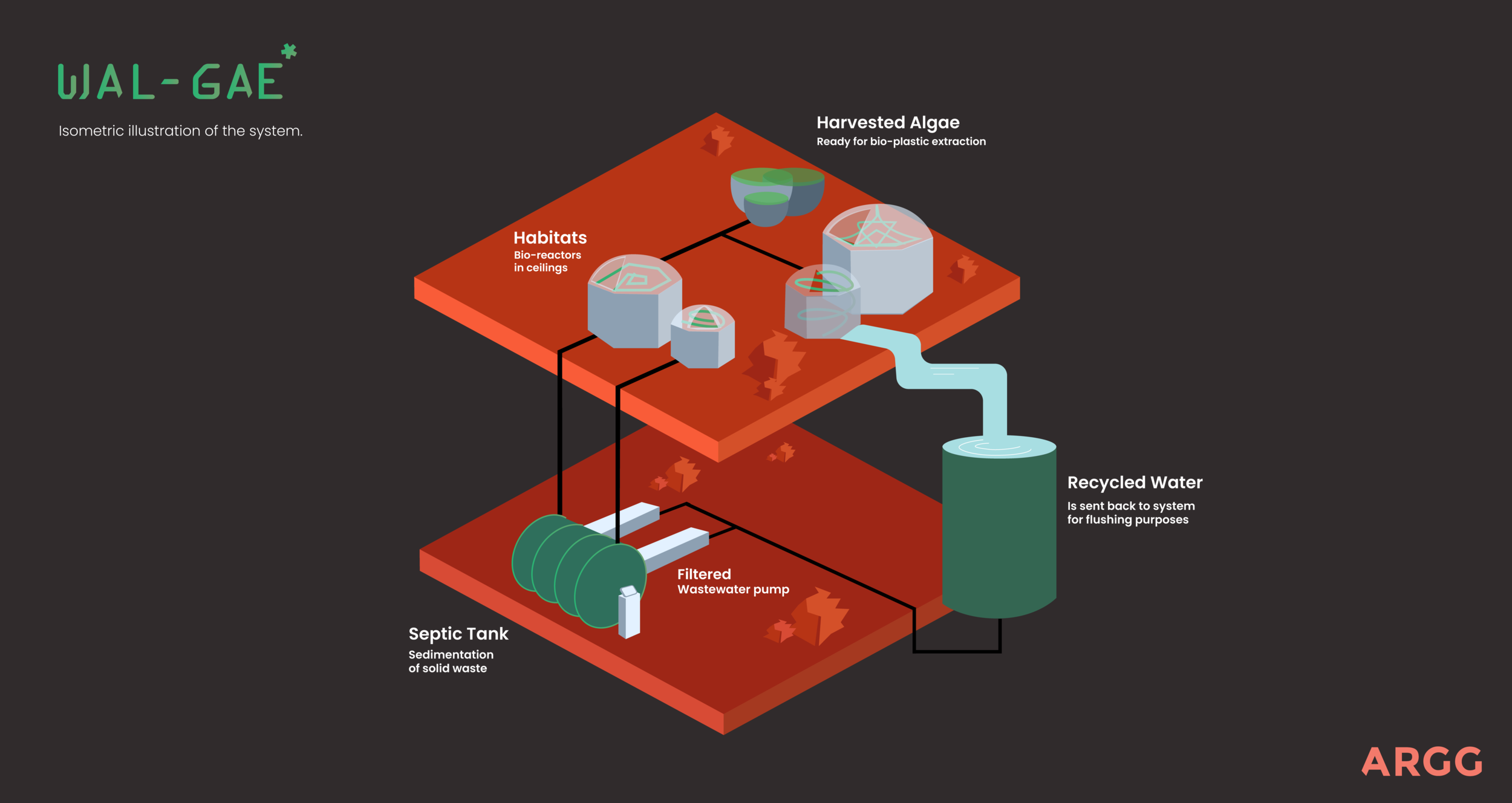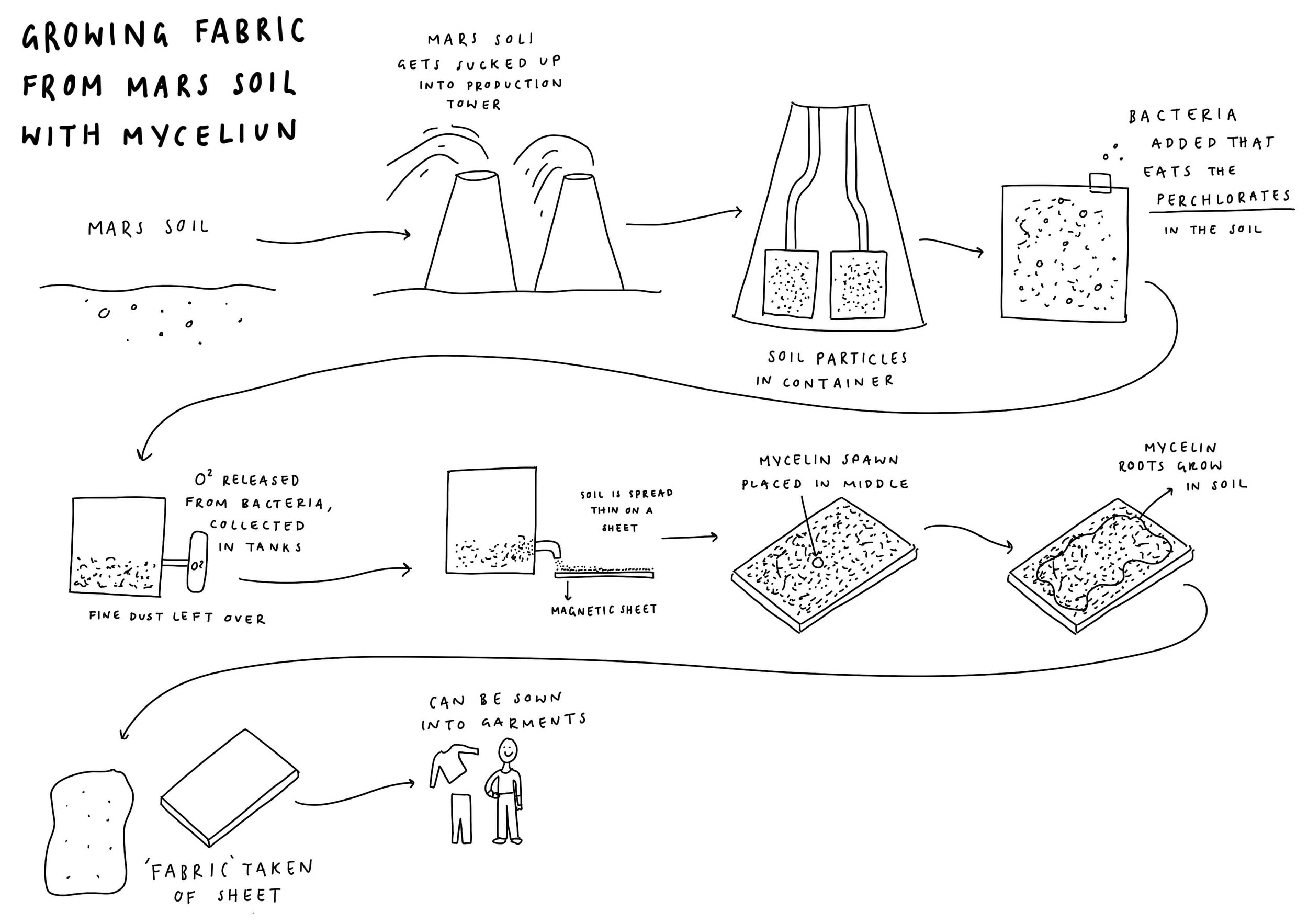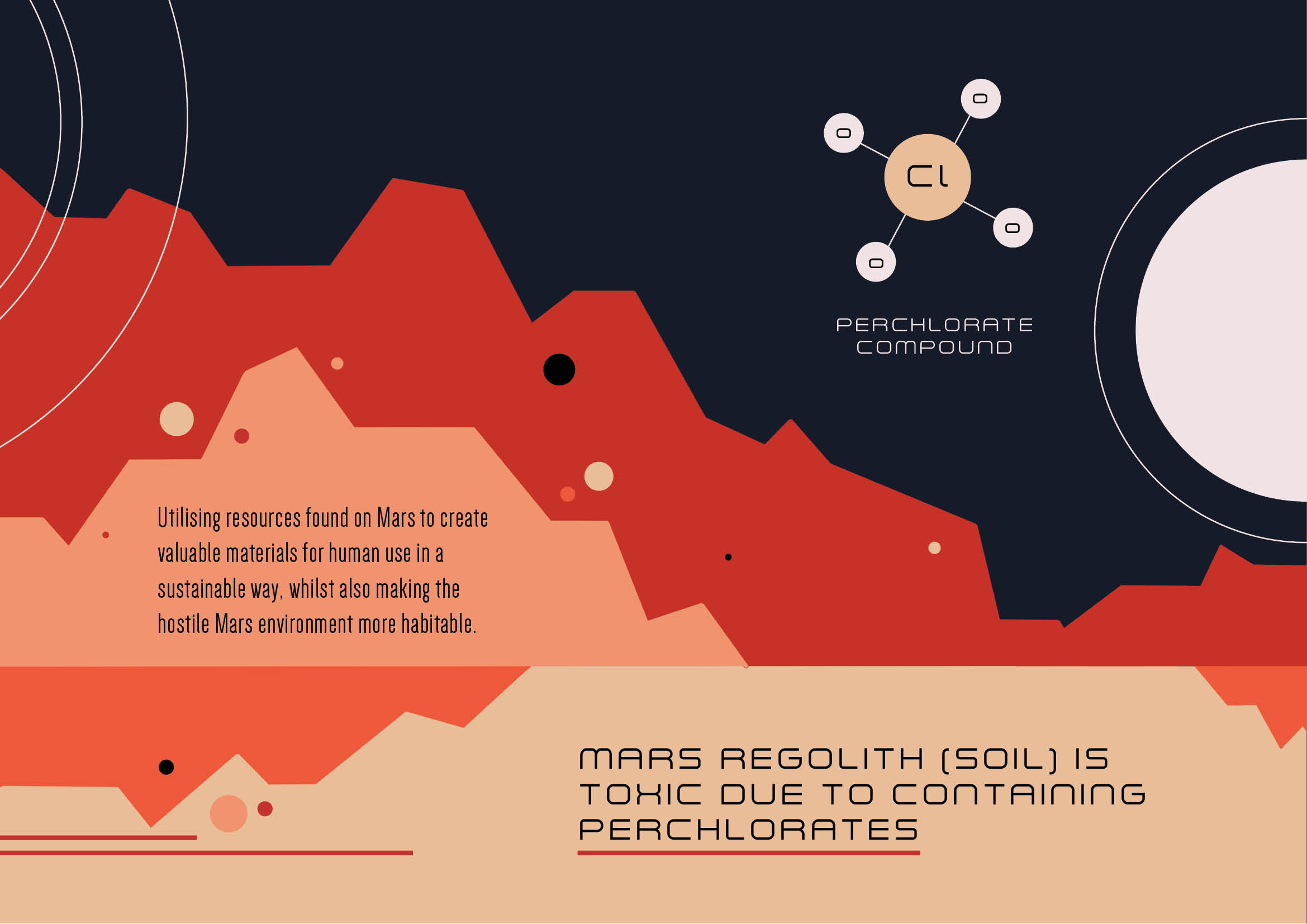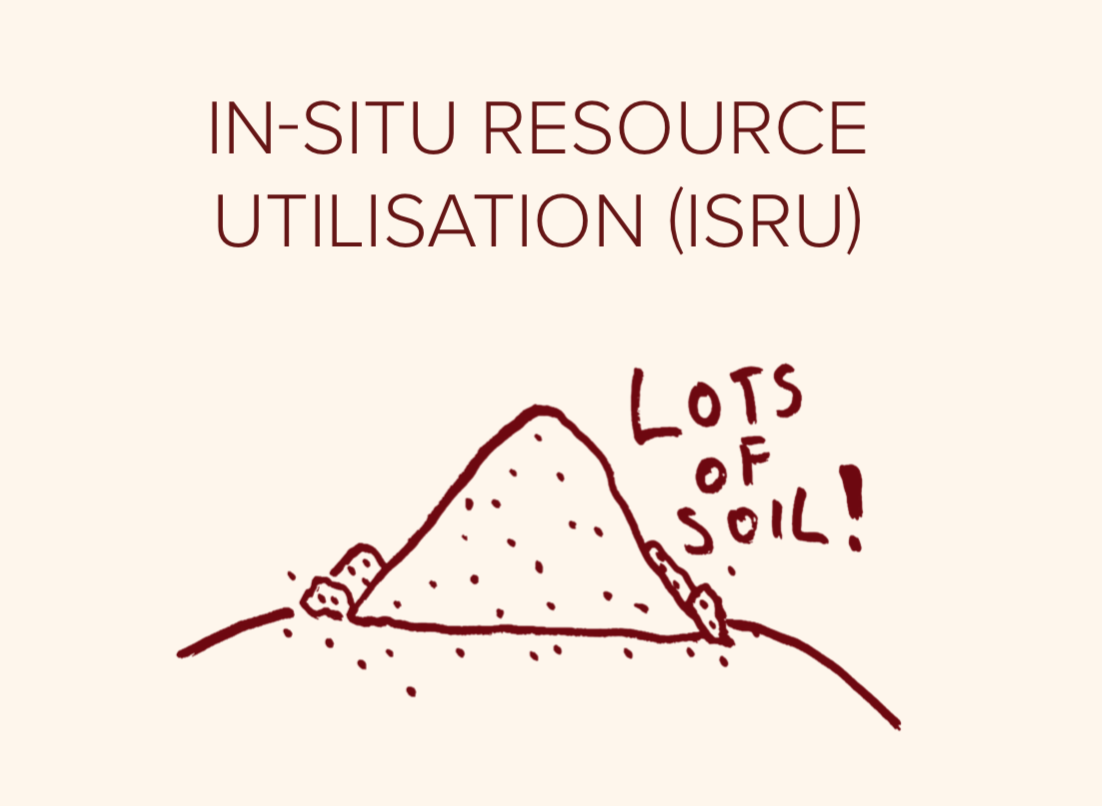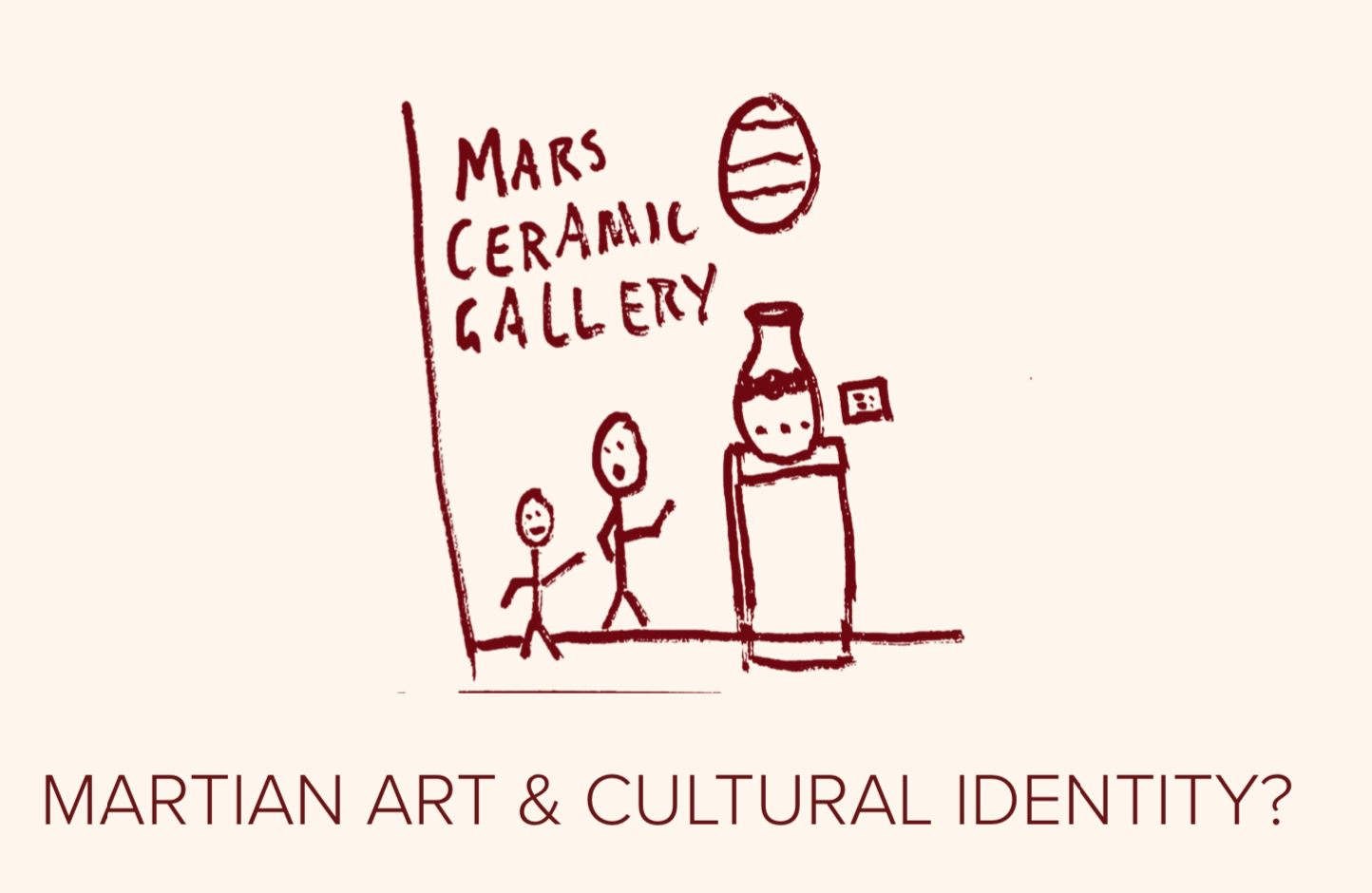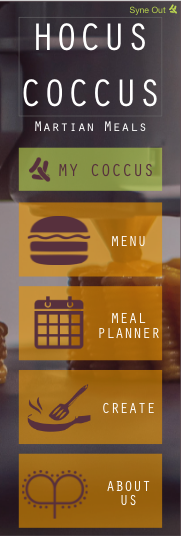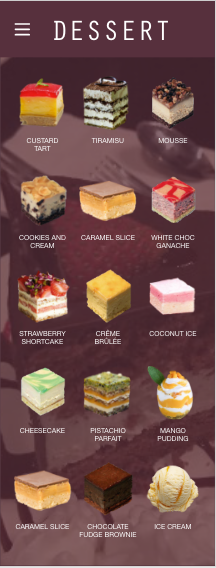University of Technology Sydney
Projects | 2019
Death on Mars
Bronwyn Hallis, Amanda Han, Charles Yuncken
Using genome editing and a synthetic chromosome to encode DNA with computational data, the project proposes a future where plants can be used as living memorials for loved ones on Mars. Interacting with the memorial plant triggers photos, videos, stories, recipes, and memories of the deceased.
Outstanding Presentation Prize Winner

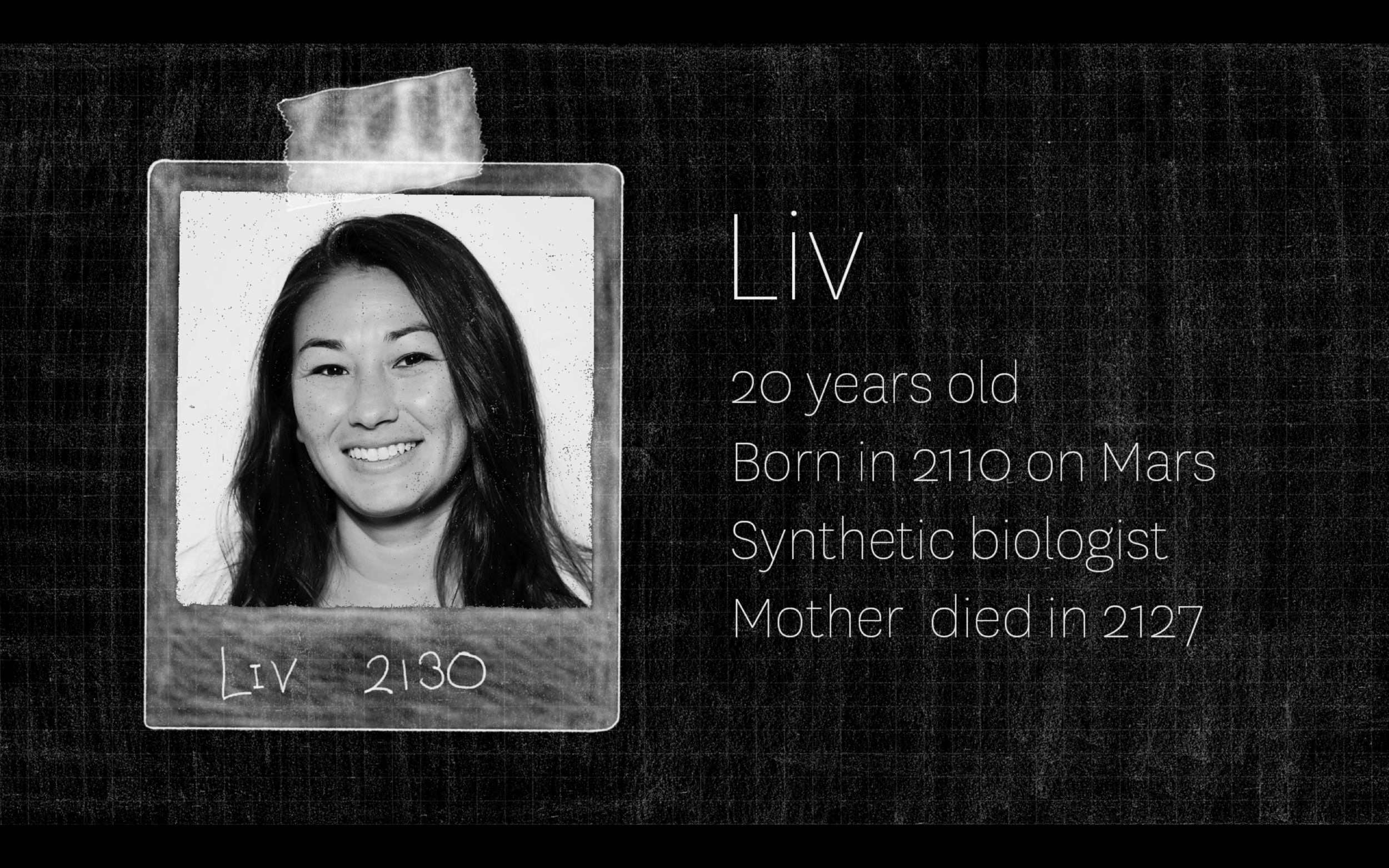
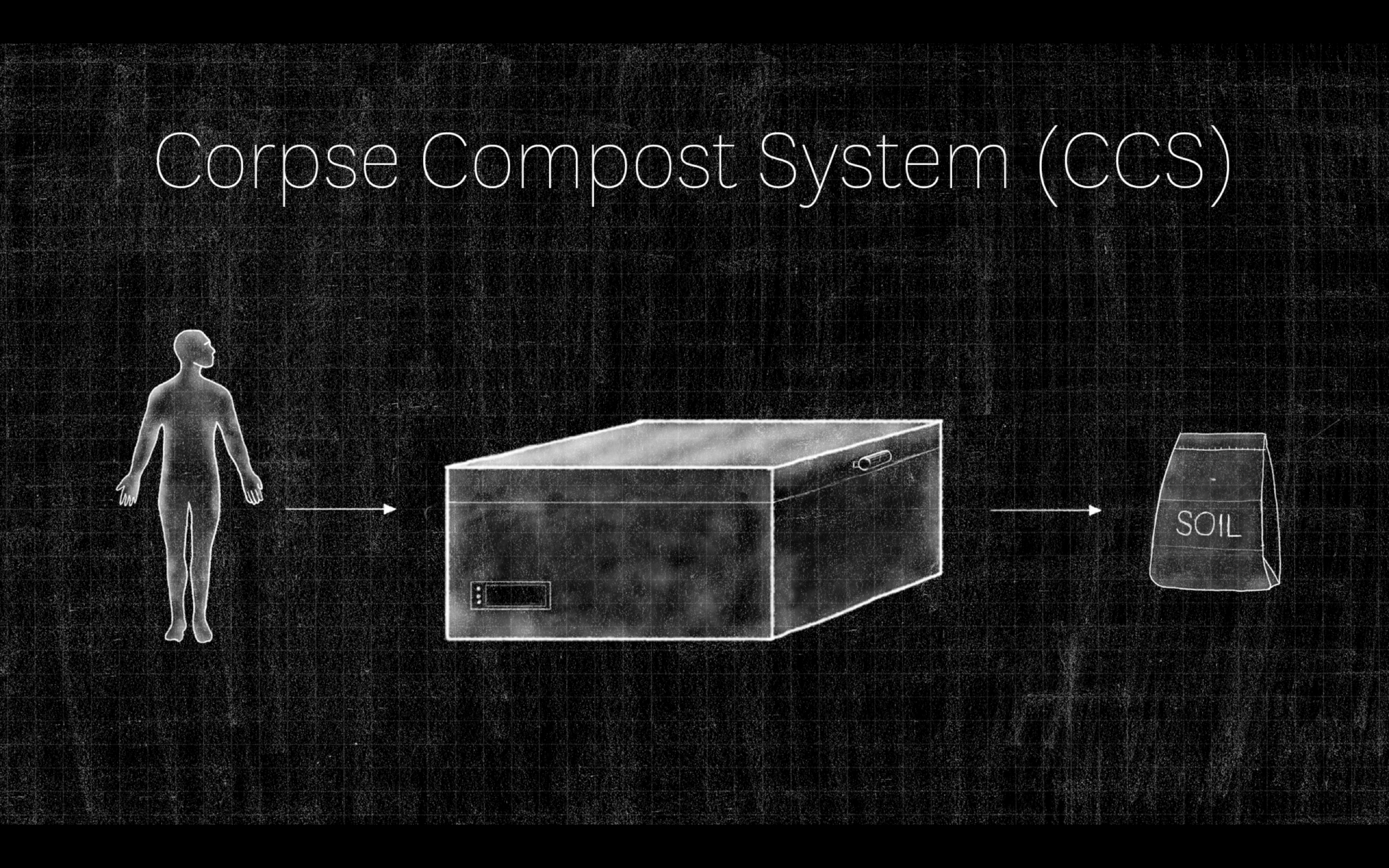
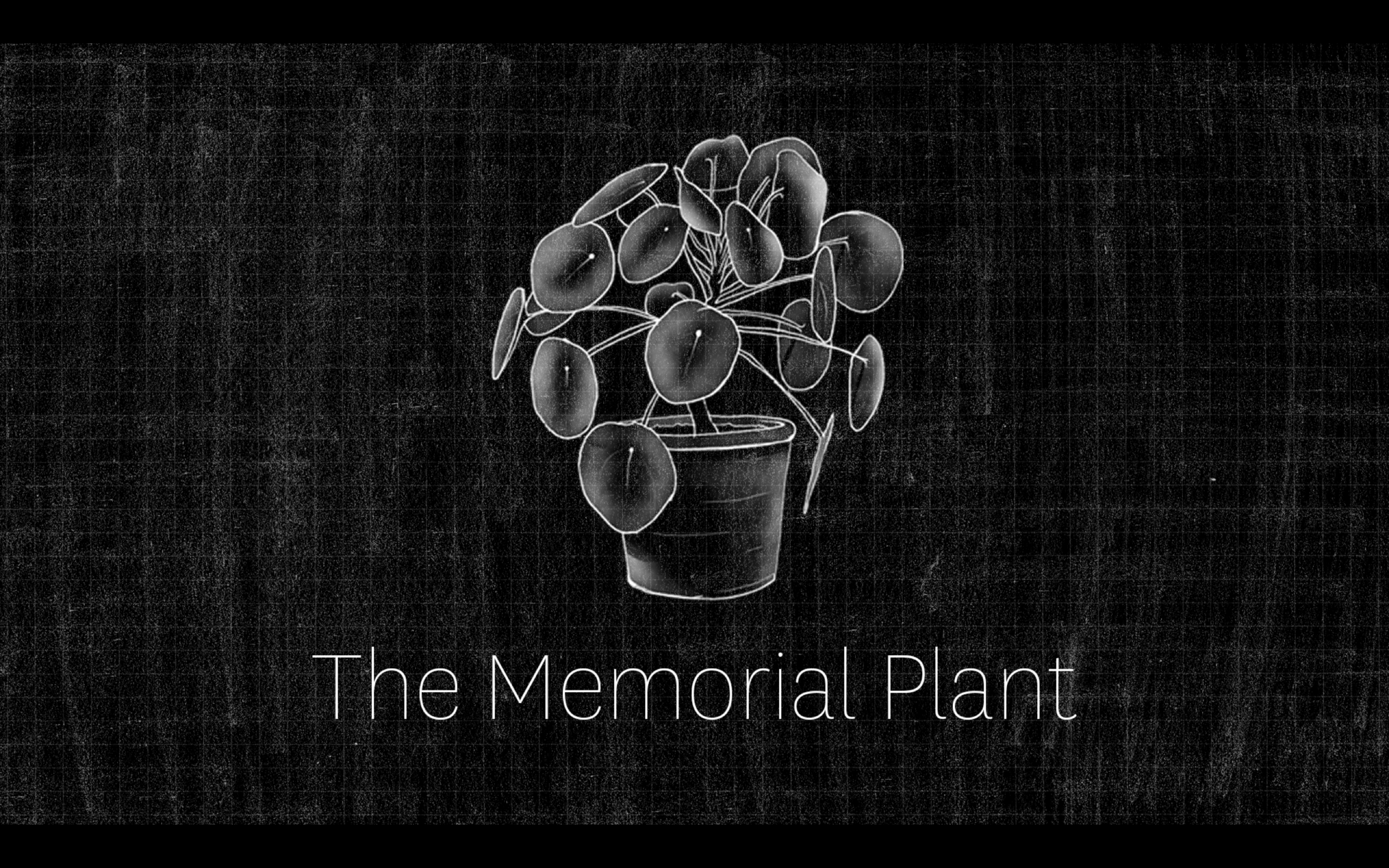
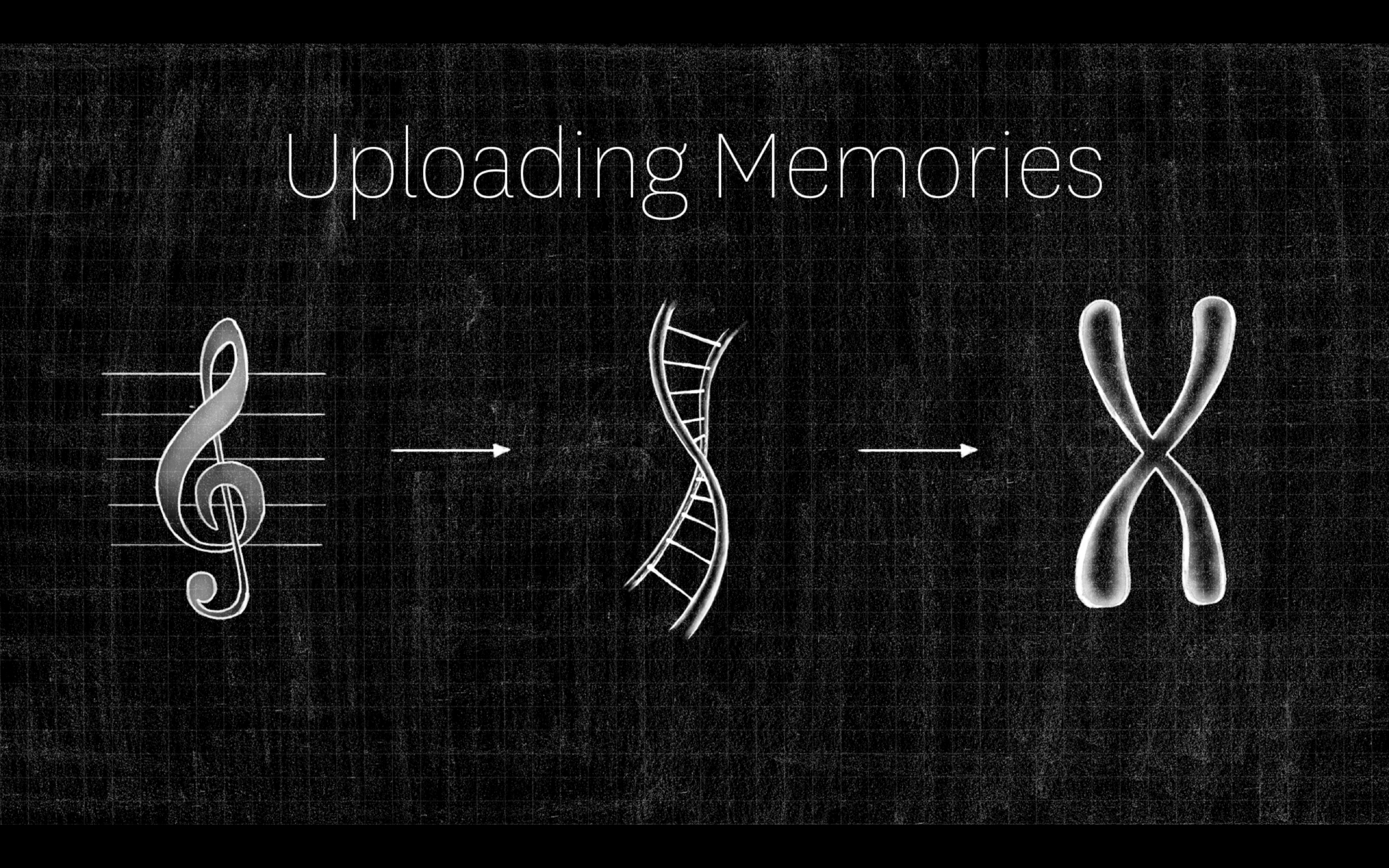
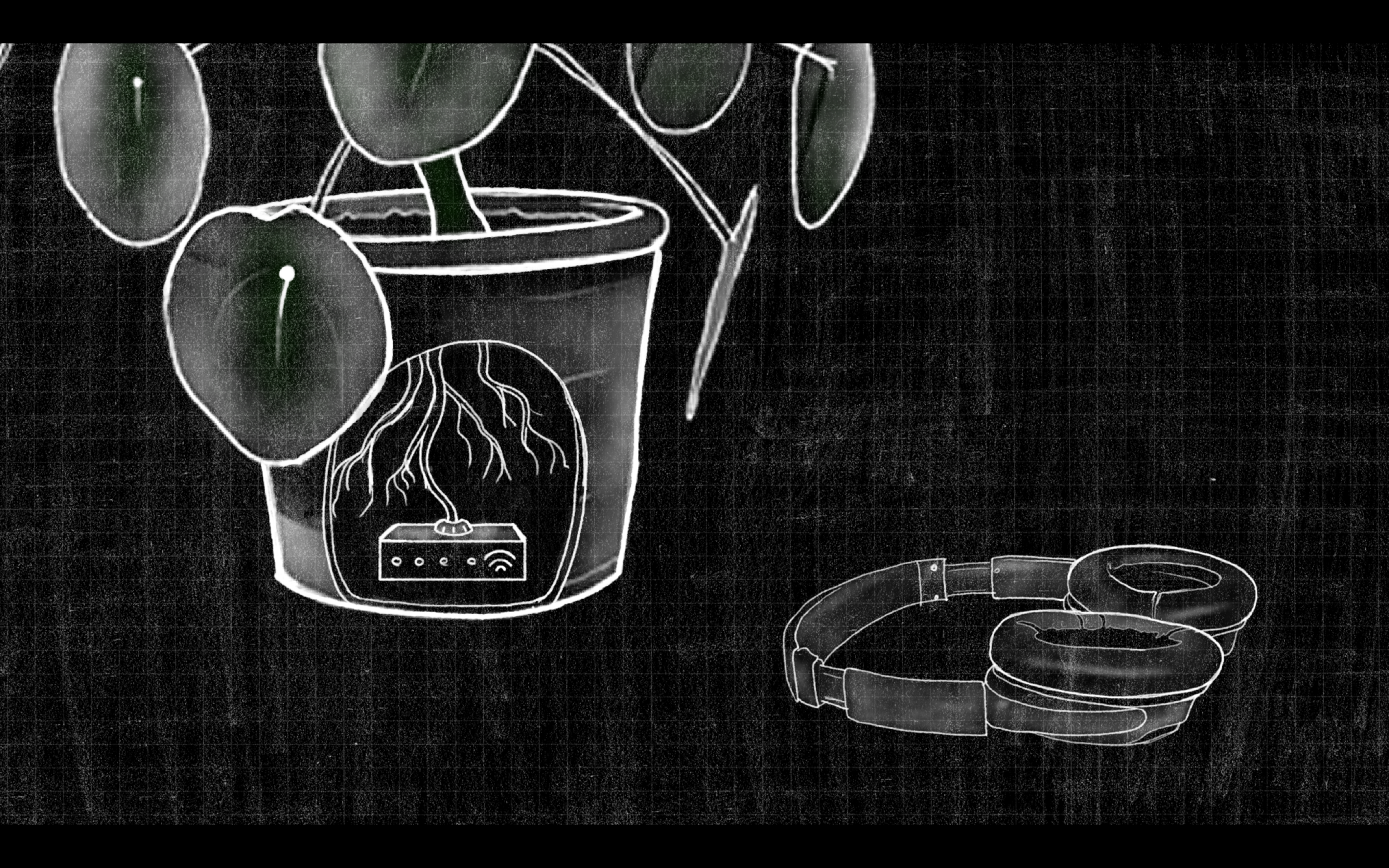
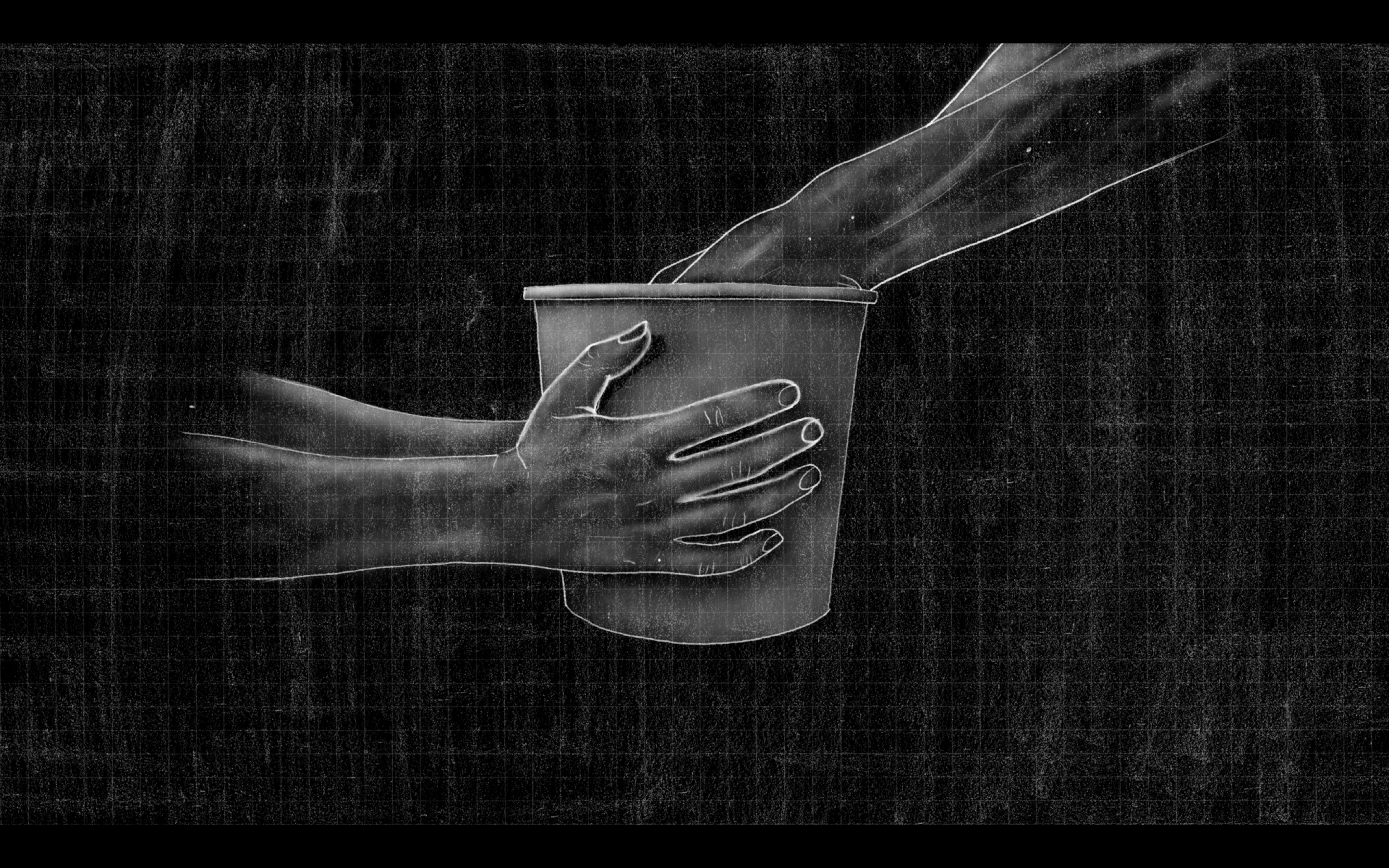
Wal–Gae*
Lilav Saaid, Ruoshan Mao, Adeel Jaffery
WAL–GAE* is a holistic approach to a waste management system that harvests a genetically modified photosynthetic microbe which utilizes human waste as a nutrient source and produces polyhydroxybuthyrate (PHB) for bio-plastic production. This design is speculative and is situated on a prospective future Mars colony where human Martians use WAL–GAE* to produce bioplastic which can be 3D printed for obtaining or replacing small plastic parts as needed.
Biovellum
Oliver Damian, Louise Wolstenholme, Megan Donnelly
Biovellum explores a process of creating textiles using an abundant Mars resource: toxic regolith. Perchlorates are removed from the regolith using a bacteria that has been genetically modified to include genes from variety of species that exhibit desired material traits, such as spider silk. Microbes secrete a matrix that combine the regolith and bacteria together in a biofilm that can then be used as a textile.
Martian Clay
Heather Beggs, Jock Price, Audrey Wu
This project explores the idea of creating clay using only materials that would be readily available on Mars. The team proposed base materials for the clay, ways to treat materials that are potentially toxic, and even processes that would mimic glazing and firing finished products in a kiln.
Hocus Coccus
Binita Shah, Jake Harris and Moukthida Kammapradith
Hoccus Coccus is a food system designed for a Martian habitat that redesigns the current food system. In addition to eliminating food waste and delivering nutritionally dense meals for the first Mars research colony, Hoccus Coccus seeks to maintain livelihood by providing customizable flavors and colors that elevate interplanetary eating from a necessity to an enjoyable cultural experience.
Instructors
Dr. Mark Liu is a fashion and textile designer focused on advancing fashion design through the application of scientific principles to traditional techniques. His PhD research developed the new field of “Non-Euclidean Fashion Patternmaking”. Mark is an acknowledged pioneer in the area of Zero-Waste Fashion design in the sustainable fashion movement in London. This developed out of his research while completing a Masters of Textiles Futures at Central Saint Martins College. Mark ran a Zero-Waste Fashion label for several years and has exhibited in Estethica at London Fashion Week for many seasons. This fashion label was awarded the Innovation Award by the Ethical Fashion Forum.
His work bridging the gap between fashion and science has showcased at the London Science Museum. Mark’s commissions have taken him all over the world, including representing the British Council in a sustainable fashion show in New Delhi, and creating collections for the Gyeonggi Museum of Modern Art in Korea. His work has exhibited in museums in the UK, US, China, India, Korea, Amsterdam, and Denmark and has been published in numerous newspapers, magazines, books, publications, and blogs.
Dr. Briardo Llorente recently joined Macquarie University as a CSIRO Synthetic Biology Future Science Fellow. He is particularly interested in developing synthetic photosynthetic life, organisms with new and improved biological functions, and using synthetic biology to study evolution. Recently, Briardo published a scientific article describing the multi-planetary future of synthetic biology and presented this work at SynBioBeta 2018. He is currently developing a Mars Biofoundry to create extraterrestrial conditions for synbio testing.
Born in Argentina, Briardo has worked extensively internationally, having spent time in Spain, Denmark, and in the USA. He completed his PhD at the University of Buenos Aires and worked as a visiting researcher at the University of Aarhus in Denmark and the Salk Institute in California. He has held positions as a Marie Curie Fellow and Juan de la Cierva Fellow at the Center for Research in Agricultural Genomics (GRAG) in Barcelona.
Jestin George is a biotechnology PhD student at UTS, Australia and a freelance artist. Jestin’s research has spanned plant, mammalian cell, and microalgal biotech systems across universities in South Africa, the UK, and Australia. Her current research explores genetic engineering approaches for realising the microalga, Phaeodactylum tricornutum, for synthetic biology and biotech applications. Her work as a freelance artist and passion for communication design have helped bring a unique viewpoint to her research as a scientist. Jestin intends to use her PhD and scientific knowledge to collaborate with designers for biodesign solutions. She has won awards for scientific communication for both scientific and lay audiences and has written various online blog articles. In 2018, Jestin was a member of the executive committee of Synthetic Biology Australasia and worked towards advancing communication within the synthetic biology community based there, as well as between it and the public.
